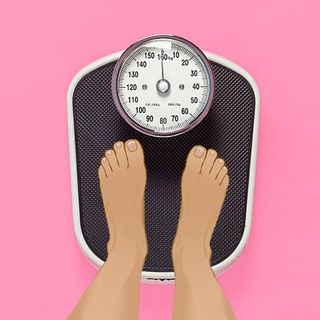
Small, Daily Efforts Can Improve Mental Health and Well‑Being
Think of it as hygiene for your mind.

When people colloquially toss around the term ‘mental health,’ a huge range of interpretations are possible. There are the more obvious psychiatric disorders caused by chemical imbalances in the brain, such as clinical depression, schizophrenia, or bipolar disorder, which can be treated through therapy, long-term medication, or, in some cases, hospitalization. There are also more temporary forms of depression and other mood disorders that can be ameliorated through therapy, especially if they occur as a reaction to an adverse life event, such as a death in the family or a divorce.
However, less commonly understood is the concept of daily mental health hygiene; the attention we pay to our mental and emotional state on a regular basis can improve our sense of mental well-being, benefit our physical health, and build skills that make coping with stress during the bad times easier. Much in the same way that doctors advise we wash our hands and exercise regularly to keep our bodies healthy, so too, are mental health professionals starting to describe the importance of specific, preventative measures to improve mental health and keep anxiety, stress, and mood swings at bay.
What types of daily activities improve mental health?
Exercise and healthy eating. First and foremost, mental health is deeply tied to physical health. Specifically, a regular and sufficient sleep schedule is vitally important to the body’s self-repair mechanisms and to the many hormonal and chemical balances that keep us functional, mentally and physically.
Furthermore, the benefits of regular physical exercise are well-documented, both as a short-term mood enhancer and towards alleviating long-term symptoms of depression. Avoiding junk food and giving the body all it needs in terms of nutrients (by eating plenty of fresh fruits and vegetables) only bolsters the body’s ability to produce serotonin, our natural mood enhancer. And finally, avoiding excess alcohol and recreational drugs is important.
Self-care. Even assuming that you are making time to address your physical health needs, stressful work and family schedules can still wreak havoc on mental health. Self-care is a subset of mental health hygiene that refers specifically to identifying and pursuing personal needs that make life happier or more enjoyable.
For some people, this may be a daily 20-minute guided meditation podcast. But for others, it may be a daily morning walk (time spent outdoors is also helpful for decreasing levels of brain activity tied to depression). And for someone else, it may be a weekly manicure appointment. There is no right or wrong way to take time out for an pleasurable activity. (Meditation is not for everyone!) If you enjoy it, and you make time to appreciate this activity regularly, that may be enough to contribute meaningfully to your sense of well-being.
Positive thinking. Positive thinking also helps to improve and maintain mental health. This isn’t just about optimism, though training yourself to look for the silver linings in bad or stressful situations is part of it. (If you build this habit for the small stuff, it will be easier to apply for difficult situations when you most need it.)
It’s also about feeling confident and able; for some, fostering this mental state might be a matter of learning a new skill that isn’t required for work — gaining a sense of mastery builds our confidence and belief that success is possible. Another source of positivity is via human relationships, so being social or building an appreciation of friendships and familial relationships into your routine is important.
What are long-term ways to improve mental health?
Getting help when you need it — or even when you don’t. Even if you pursue mental health hygiene actively, and already follow most expert advice on taking care of your mind and body, there may still be times when you benefit from a professional’s perspective. For example, if feelings of negativity, helplessness, and sadness are impeding your ability to work, or impairing your personal relationships, you may need to seek professional help.
But even if that’s not the case, many people benefit from seeing a therapist to work through issues they struggle to process on their own — nagging, underlying events or feelings that can’t be reconciled. Seeing a therapist is a perfectly reasonable and appropriate way to improve and maintain mental health, and in fact, may provide you with new tools, like positive thinking exercises, that can help you build the kind of good mental health habits useful in more difficult times.
Related


Early Puberty Linked to Mom’s Weight During Pregnancy
